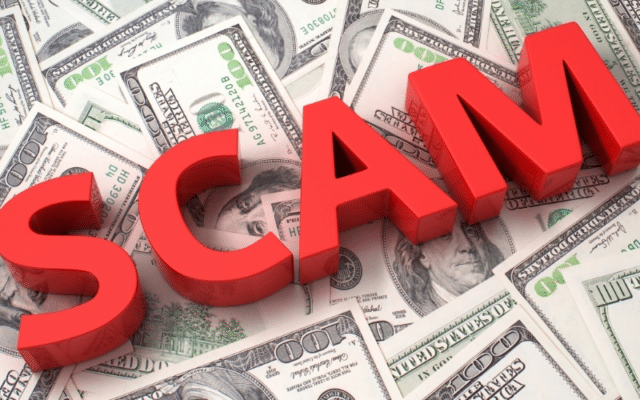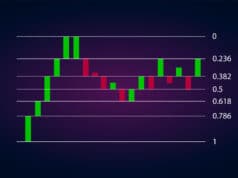You have probably received that unsolicited email, SMS, WhatsApp message, or telephone call from a stranger asking you to join their trading platform and promising you exceptional profits. The chances are that the person sending you the message was a fraudster, hoping to top you off of your money. And you are not alone.
There are thousands of forex fraud schemes out there, carefully designed and packaged in a deceptive but flowery language, targeting millions of people. The good news is that the fraudsters may be sly and sophisticated, but their schemes are certainly not foolproof. With the right kind of information, you can easily detect a forex scam.
The warning signs
1. They offer absurdly high returns
This is a common trait among fraud schemes. The golden rule of investing or trading is that there are no guarantees. Even the most well-thought-out strategies often fall flat. It takes a long time and often lots of resources to succeed as a trader.
Therefore, legitimate traders will always want to reward themselves for their efforts, and they offer fair but moderate and realistic profits. In addition, they will typically not make promises of “guaranteed returns” to their clients.
The flip side to this is that if the trading scheme really pays off “guaranteed returns,” they wouldn’t need to pitch their business to people they hardly know desperately. They would invest directly in the market using their “cutting edge” strategies and make all the money they need!
The best way to identify whether you are dealing with a legitimate trader is to seek alternative advice from established traders, investors, or even lawyers.
2. The scheme targets many people
Fraudsters like to send thousands of emails, text messages to increase their odds of successful scams. WhatsApp messages etc., with each of their targets, lured that they are the only ones selected to “benefit from the rare opportunity.”
In true human nature, some people are duped to the extent of not sharing such news with their friends or relatives. This often proves a costly mistake.
Whenever you receive such tempting offers, it is better to share the news with someone you trust. The chances are that they will probably tell you that they have recently received a similar message or received it in the past. Alternatively, do a little research online regarding the matter, and you are likely to find several complaints regarding it.
3. The urgency of the opportunity raises suspicion
Scam artists have mastered to a great degree the workings of human psychology. They will therefore lie that the opportunity is urgent in order to mislead you into making a rash decision, thereby increasing the chances of falling for their scam.
In contrast, legitimate investment firms always give their customers adequate time to read, research and understand the type of opportunities being offered. A reputable company will not want to trick you into making a rushed and uninformed investment decision.
4. Many unsolicited messages
This is a common practice among all fraudulent forex scams. They will persist in sending you several unsolicited forex investment “opportunities” and will probably keep changing their email or telephone addresses as they are flagged down and blocked.
From time to time, even reputable and regulated firms may send you an unsolicited message, but they will not be spamming your email or persist in making phone calls despite turning them down or failing to respond to their previous messages.
5. High spreads
To entice unsuspecting investors, fraudulent forex brokers may offer spreads that deviate very widely from standard market rates. For instance, major pairs such as GBPUSD typically have 2 to 3 pips. However, forex scammers may offer you something in the range of 5 to 8 pips. This obviously doesn’t make economic sense since majors usually have small price movements due to their low volatility.
While it is not uncommon for brokers to periodically offer high spreads, such offers are usually given to institutional investors or high net worth individuals. You should therefore take extra caution whenever an investment firm or broker approaches you with an opportunity that wouldn’t usually be offered to retail investors.
Tips to help you avoid falling victim
- Regulatory approval – Legitimate forex firms are regulated and licensed by the respective national regulators. This ensures that the activities they are engaged in are monitored and that the firms are answerable for any malpractices they may engage in. On the other hand, scam firms are neither licensed nor regulated, which is why they confidently engage in illegal activities.
Therefore, whenever you receive messages offering you money-making forex opportunities, ensure that you seek proof of licensing by regulators. For example, firms in the UK are licensed by the Financial Conduct Authority, while those in the United States are licensed by the Commodities and Futures Trading Commission.
- Search for online reviews – If a firm has such a high success rate as most of the scam forex firms claim, then the same should be reflected through online reviews. Reviews offer you a glimpse into the practices of a company, including how it relates to its clients. You should, however, beware of sponsored fake reviews and visit several review sites to get a clearer picture.
- Quality of customer support – Many forex brokers have automated their customer support services to a great extent. However, they will still attend to your questions whenever the automated replies are inadequate.
While this is not the most effective way of determining the legitimacy of a forex firm, it always helps to evaluate the efficiency of customer service and their ability to answer your questions adequately. An unclear or rude answer would definitely be a red flag.
In summary
The global forex market is awash with unending forex scams. Knowing how to detect them and avoid them is key to succeeding as a trader and investor. When the deal is too good, dig deeper by asking questions.




